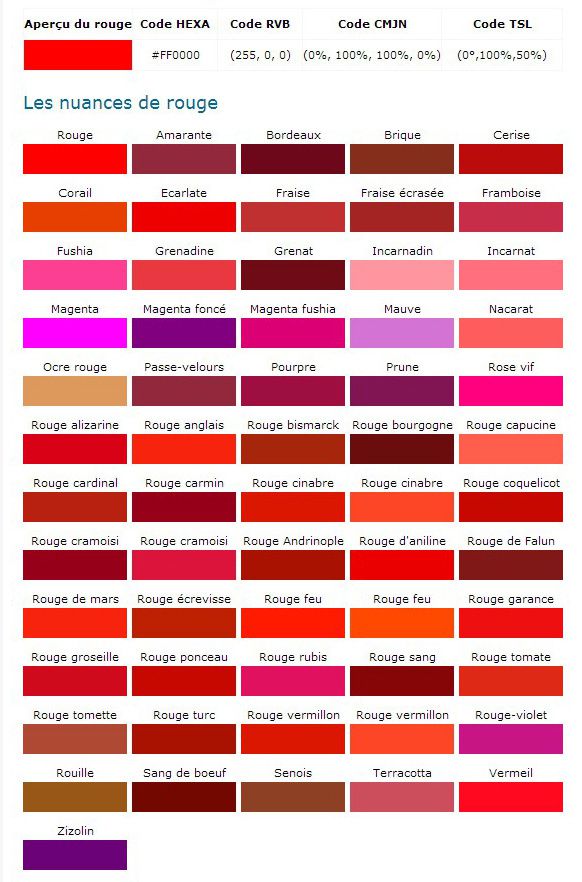-
 Banno
30.6k
Banno
30.6k
I'm still stuck here:...small differences like these shouldn't be a problem for understanding. — khaled
You talk of your-experience-of-red; I talk of my-experience-of-red; yet you think the meaning of "red" is what they refer to.You see, the funny thing is that you presume we all use the same word, "red", for a certain experience; and yet you deny that we all have the same experience. But when we point out that the experience seems therefore to be irrelevant, you disagree. — Banno
How are we talking about the same thing?
The referent of "red" for you is on your account entirely distinct from mine; so how can they mean the same thing? -
 Banno
30.6kI love the Borg. — Marchesk
Banno
30.6kI love the Borg. — Marchesk
An interesting species...
But I was puzzled by the introduction of the queen; she seemed incongruous.
For instance, Locutus was introduced as an individual to give a face to the Borg in assimilating humanity; but why bother, if there already was an individual who could represent the Borg consciousness? -
 Marchesk
4.6kFor instance, Locutus was introduced as an individual to give a face to the Borg in assimilating humanity; but why bother, if there already was an individual who could represent the Borg consciousness? — Banno
Marchesk
4.6kFor instance, Locutus was introduced as an individual to give a face to the Borg in assimilating humanity; but why bother, if there already was an individual who could represent the Borg consciousness? — Banno
Uhhh, are we really going to do the thread like this? Okay.
That is a good point. I'm guessing the writers hadn't thought up the Queen yet. And what made humanity so special? Wouldn't they do that for all species? Have one Locutus individual for Romulans, Ferengi, etc?
A better question is, what would it be like for Odo? Do his sensations change as he modifies his form? And can changelings be assimilated? Who would win in a fight between Kirk and Picard?
-
 Marchesk
4.6kdoes Odo know what it is like to be a bat? — Banno
Marchesk
4.6kdoes Odo know what it is like to be a bat? — Banno
Yes, that's it! Changelings would make the best philosophers. They could just morph into whatever and tell us.
I don't recall them ever exploring Odo using non-human senses. I know something he was a piece of furniture or a glass on Quark's tray. -
 Banno
30.6kI don't recall them ever exploring Odo using non-human senses. — Marchesk
Banno
30.6kI don't recall them ever exploring Odo using non-human senses. — Marchesk
Of course, how could one know that Odo had morphed into a bat correctly... That he had the correct sensations, those actually had by a bat, and not just a translation of them into Changeling.
Now that seems to help my case; that there is no way of being sure that Odo has done it right; indeed, that the notion of doing it right does no work here. -
 khaled
3.5kHow are we talking about the same thing?
khaled
3.5kHow are we talking about the same thing?
The referent of "red" for you is on your account entirely distinct from mine; so how can they mean the same thing? — Banno
I didn't say we were referring to the same thing, I don't know if we are or not (I don't know if we are having the same experience when looking at an apple). But regardless that is not a hinderence to communication. You could be seing inverted colors from me and we would understand each other perfectly.
Do you understand what a homomorphism is? As long as our experiences are homomorphisms of each other we will understand each other. -
 bongo fury
1.8k
bongo fury
1.8k -
 Andrew M
1.6kThe word "red" picks out a physical aspect of the apple, not how it appears (which is a qualifier meaning "seem; give the impression of being", not a reference to a mental entity or mental experience).
Andrew M
1.6kThe word "red" picks out a physical aspect of the apple, not how it appears (which is a qualifier meaning "seem; give the impression of being", not a reference to a mental entity or mental experience).
— Andrew M
The apple appearing red came long before optics. — Marchesk
Yes, it did. Now consider whether there is something about the apple that would cause the apple to appear red to us. That "something" is what the word "red" picks out, not how the apple appears to us. How the apple appears to us is part of our experience, not part of the apple. Thus there is a difference between being red (which is a feature of the apple) and appearing red (which implies a perceiver). -
 Andrew M
1.6kSellars went through all this in "Empiricism and the Philosophy of Mind" too: "looks" talk, as in "the apple looks red to Andrew", is logically posterior to "is" talk. There's no way even to make sense of it otherwise. What does it mean to say that an apple looks red except that it looks like it is red? — Srap Tasmaner
Andrew M
1.6kSellars went through all this in "Empiricism and the Philosophy of Mind" too: "looks" talk, as in "the apple looks red to Andrew", is logically posterior to "is" talk. There's no way even to make sense of it otherwise. What does it mean to say that an apple looks red except that it looks like it is red? — Srap Tasmaner
Indeed. That's a clear and concise way to put it. -
 Andrew M
1.6kWhat colour it is is how it appears under some specific "normal" conditions; what's the problem with that? — Janus
Andrew M
1.6kWhat colour it is is how it appears under some specific "normal" conditions; what's the problem with that? — Janus
None, in the sense that they both have the same truth conditions in that situation. It doesn't follow that "what color it is" and "how it appears" have the same use or meaning. The difference is that how the apple appears can change under different conditions. Whereas the apple's color does not.
No, the apple appears red to the colourblind person, just as it does to us "normal" people. That is to say it appears as a colour that he calls red, just as it appears to us as a colour we call red. It just so happens that those two colours, those two appearances are not the same. — Janus
On that basis, the apple would also appear green to the colorblind person since they can't distinguish those colors. So it would appear green and red at the same time. If that sounds odd, it's because we don't define "red" and "green" in terms of how things appear to a color-blind person. And neither does the color-blind person.
Further, we find on analysis that the term "appears" doesn't designate subjective "appearances". It is instead a term that lets us say how two different situations are, in some sense, similar.
— Andrew M
This can't be right because you have said that the apple appears different to a colourblind person than it does to a "normal" person. — Janus
And so it does. You can see here that red and green apples appear dim yellow for dichromatics.
But I reject the subject/object distinction that's implied by subjective "appearances" (i.e., mental entities or mental experiences).
You haven't said what it would mean (beyond the merely conventional usage) to say that an apple is red when no one is looking at it or when it is in the dark. — Janus
Color terms refer to a physical aspect of objects. As abstractions, it doesn't matter what the physical details are - that's a scientific question (which, we've learnt, are the light reflective properties of the object's surface). If no-one is looking or it is dark, that physical aspect of the apple is still there. That the apple isn't being looked at, or appears differently in the dark, doesn't change that physical aspect. -
creativesoul
12.2kI think 'seeing redness' is a valid way of talking about certain visual perceptions. But it is abstracted from the usual context where the redness belongs to an object of a particular size, shape texture and so on, and the red is of a particular tone, intensity, hue and so on.
One way of simply seeing red would be to place someone in front of a screen emitting red light, or painted red, that fills the visual field entirely. I certainly don't believe in subjective visual perceptions that are somehow "in the brain" and stand as intermediaries between us and the objects we see.
The other meaning of 'qualia' is something like 'raw percept' where what is seen is not seen 'as anything'. I guess this is only possible in rare instances, or with infants, because most everything we see is always already conceptually mediated. — Janus
I don't think that we're too far apart here.
Regarding the temporal order of emergence, elemental constituency, and thus existential dependency, I suspect we're largely in agreement. When it comes to thought and belief about red, naming things that consistently reflect/emit certain frequencies of light "red" happens first. In our own linguistically/conceptually mediated ways of making sense of the world(which includes ourselves) we begin/began making sense of red things by virtue of picking out things that consistently reflect/emit the frequencies of light that we've named "red". Those things are red things. We first picked out the things reflecting/emitting those particular frequencies, called them "red".
Put more simply:Red things reflect/emit certain frequencies of light. We first named red things. We then further described red things in terms of properties/attributes/qualities. We then began to wonder if red things really are red or if they just appear red to us as a result of our physiological sensory apparatus(is your red the same as mine, etc.). Then came talk of "redness" as a so called private directly/immediately apprehensible property of subjective conscious experience.
Talk of "redness" is existentially dependent upon language use. Reflecting the frequencies we've named "red" does not. Which is basic, raw, and fundamental to consciousness? Surely not talking about it. -
creativesoul
12.2kWhat difference does that make here? In both cases, the apple is red due to how it interacts with light.
— creativesoul
But it's only red because that's the color we see. — Marchesk
No. Those frequencies are reflected/emitted prior to our looking at it. We need not look at it in order for it to reflect/emit those frequencies. We named the reflected light "red". The reflected light is the effect of the properties of the apple(how it interacts with light). -
 Olivier5
6.2kTalk of "redness" is existentially dependent upon language use. Reflecting the frequencies we've named "red" does not. — creativesoul
Olivier5
6.2kTalk of "redness" is existentially dependent upon language use. Reflecting the frequencies we've named "red" does not. — creativesoul
Certainly, talk of "frequencies" depends upon language use, just as talk of "redness" does, or talk of anything else... and ' we've named "red" ' depends explicitly upon language use. -
creativesoul
12.2kDoubting one's own physiological sensory perception requires metacognition. Cognition comes first
— creativesoul
I don’t understand the significance of this — khaled
Clearly, and it seems you're not alone. -
 Janus
18kThe difference is that how the apple appears can change under different conditions. Whereas the apple's color does not. — Andrew M
Janus
18kThe difference is that how the apple appears can change under different conditions. Whereas the apple's color does not. — Andrew M
So, all that means is that the word 'colour' means different things in different situations. Taking the word to mean a quality of an appearance, the apple has no colour when it is not appearing. Taking the word to mean the part of the electromagnetic spectrum being reflected, the apple has no colour when in the dark. And taking the word to mean the constitution of the apple that determines what part of the electromagnetic spectrum it will reflect under "normal" circumstances the apple is always whatever colour it appears to be under normal conditions.
I don't think I need to address the rest of your post because it seems to me this covers it. You want to privilege one usage of the term over the others, and that says more about your own preference than it does about common usages.
But I reject the subject/object distinction that's implied by subjective "appearances" (i.e., mental entities or mental experiences). — Andrew M
So do I if that distinction is taken to be anything more than a convenient way of talking about things. That said it is true that I can't see what you're seeing, and vice versa. I know what it is for me to see something red, and the different feelings and associations that come with that experience compared to seeing things of other colours. -
 Andrew M
1.6kYou want to privilege one usage of the term over the others, and that says more about your own preference than it does about common usages. — Janus
Andrew M
1.6kYou want to privilege one usage of the term over the others, and that says more about your own preference than it does about common usages. — Janus
No, it's about being clear on what the usages are and how they relate to each other. When says that "All cats are grey in the dark", I understand what he's saying. It's equivalent in that context to saying, "All cats look grey in the dark". No disagreement from me.
However that use is derivative from situations where we observe an object in normal lighting which is where color distinctions are originally made. That's the reference point in the world. Without that reference point, you have to contend with the private language argument. -
 Janus
18kHowever that use is derivative from situations where we observe an object in normal lighting which is where color distinctions are originally made. That's the reference point in the world. Without that reference point, you have to contend with the private language argument. — Andrew M
Janus
18kHowever that use is derivative from situations where we observe an object in normal lighting which is where color distinctions are originally made. That's the reference point in the world. Without that reference point, you have to contend with the private language argument. — Andrew M
That I do agree with!
Welcome to The Philosophy Forum!
Get involved in philosophical discussions about knowledge, truth, language, consciousness, science, politics, religion, logic and mathematics, art, history, and lots more. No ads, no clutter, and very little agreement — just fascinating conversations.
Categories
- Guest category
- Phil. Writing Challenge - June 2025
- The Lounge
- General Philosophy
- Metaphysics & Epistemology
- Philosophy of Mind
- Ethics
- Political Philosophy
- Philosophy of Art
- Logic & Philosophy of Mathematics
- Philosophy of Religion
- Philosophy of Science
- Philosophy of Language
- Interesting Stuff
- Politics and Current Affairs
- Humanities and Social Sciences
- Science and Technology
- Non-English Discussion
- German Discussion
- Spanish Discussion
- Learning Centre
- Resources
- Books and Papers
- Reading groups
- Questions
- Guest Speakers
- David Pearce
- Massimo Pigliucci
- Debates
- Debate Proposals
- Debate Discussion
- Feedback
- Article submissions
- About TPF
- Help
More Discussions
- Other sites we like
- Social media
- Terms of Service
- Sign In
- Created with PlushForums
- © 2026 The Philosophy Forum











